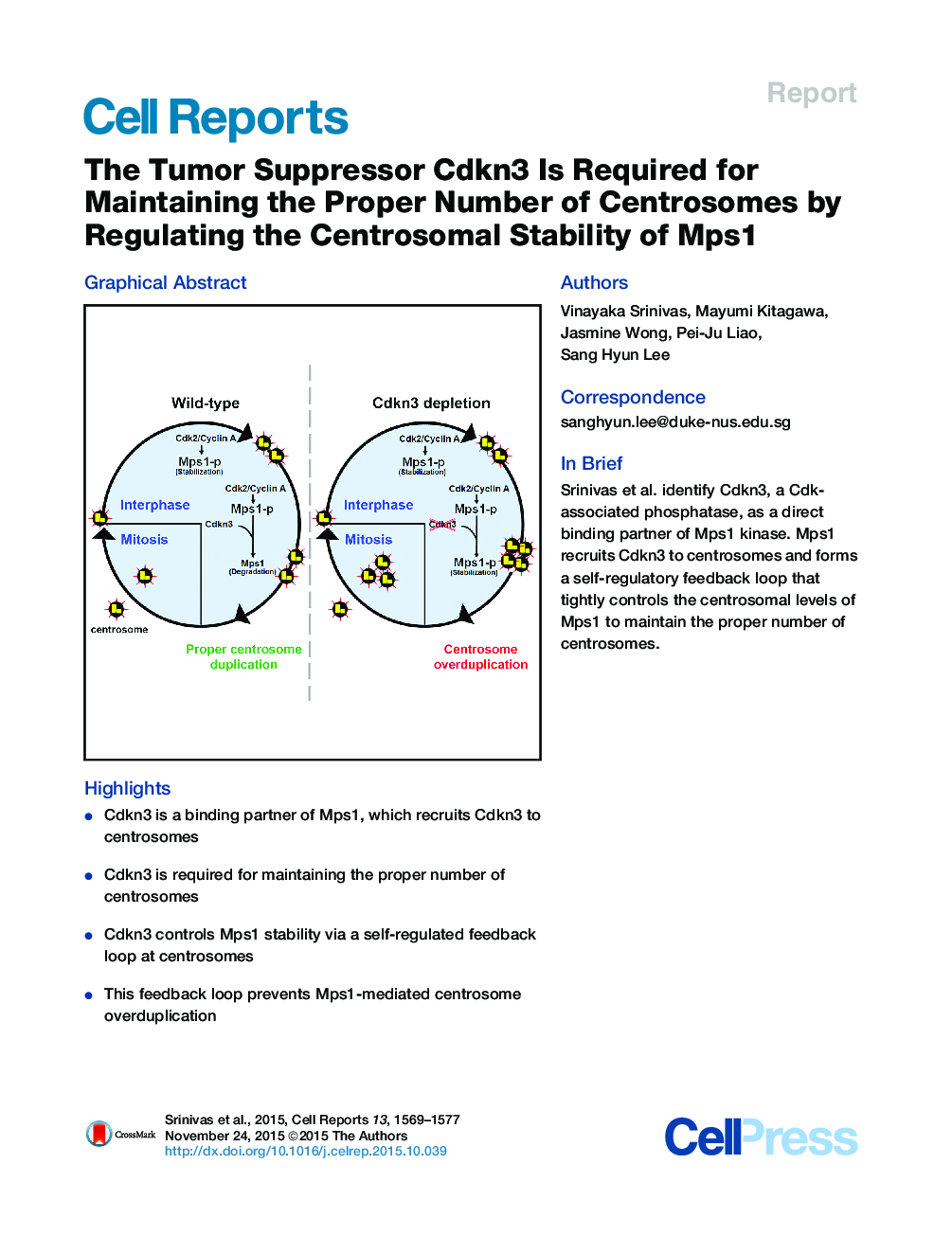| Article ID | Journal | Published Year | Pages | File Type |
|---|---|---|---|---|
| 2039170 | Cell Reports | 2015 | 9 Pages |
•Cdkn3 is a binding partner of Mps1, which recruits Cdkn3 to centrosomes•Cdkn3 is required for maintaining the proper number of centrosomes•Cdkn3 controls Mps1 stability via a self-regulated feedback loop at centrosomes•This feedback loop prevents Mps1-mediated centrosome overduplication
SummarySupernumerary centrosomes promote the assembly of abnormal spindles in many human cancers. The observation that modest changes in the centrosomal levels of Mps1 kinase can cause centrosome overduplication in human cells suggests the existence of a regulatory system that may tightly control its centrosomal stability. Here, we show that Cdkn3, a Cdk-associated phosphatase, prevents Mps1-mediated centrosome overduplication. We identify Cdkn3 as a direct binding partner of Mps1. The interaction between Mps1 and Cdkn3 is required for Mps1 to recruit Cdkn3 to centrosomes. Subsequently, Mps1-bound Cdkn3 forms a regulatory system that controls the centrosomal levels of Mps1 through proteasome-mediated degradation and thereby prevents Mps1-mediated centrosome overduplication. Conversely, knockdown of Cdkn3 stabilizes Mps1 at centrosomes, which promotes centrosome overduplication. We suggest that Mps1 and Cdkn3 form a self-regulated feedback loop at centrosomes to tightly control the centrosomal levels of Mps1, which prevents centrosome overduplication in human cells.
Graphical AbstractFigure optionsDownload full-size imageDownload as PowerPoint slide
